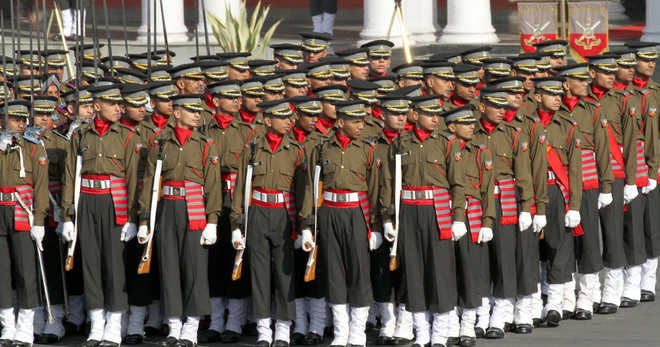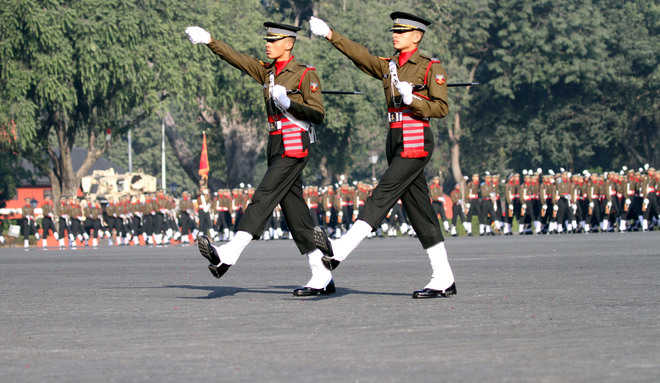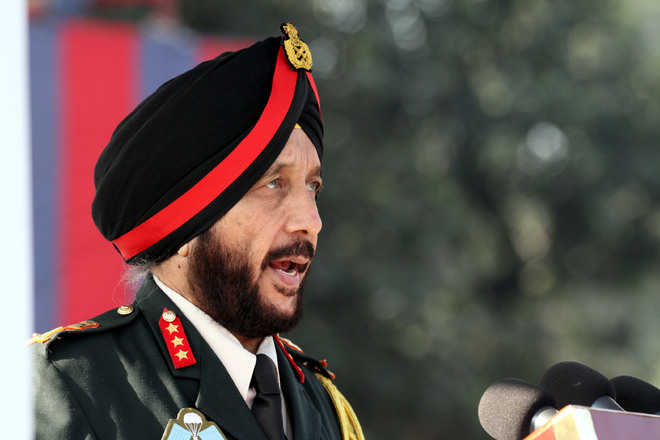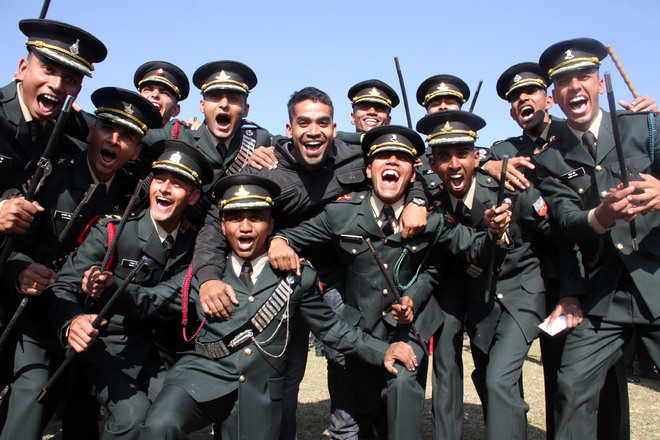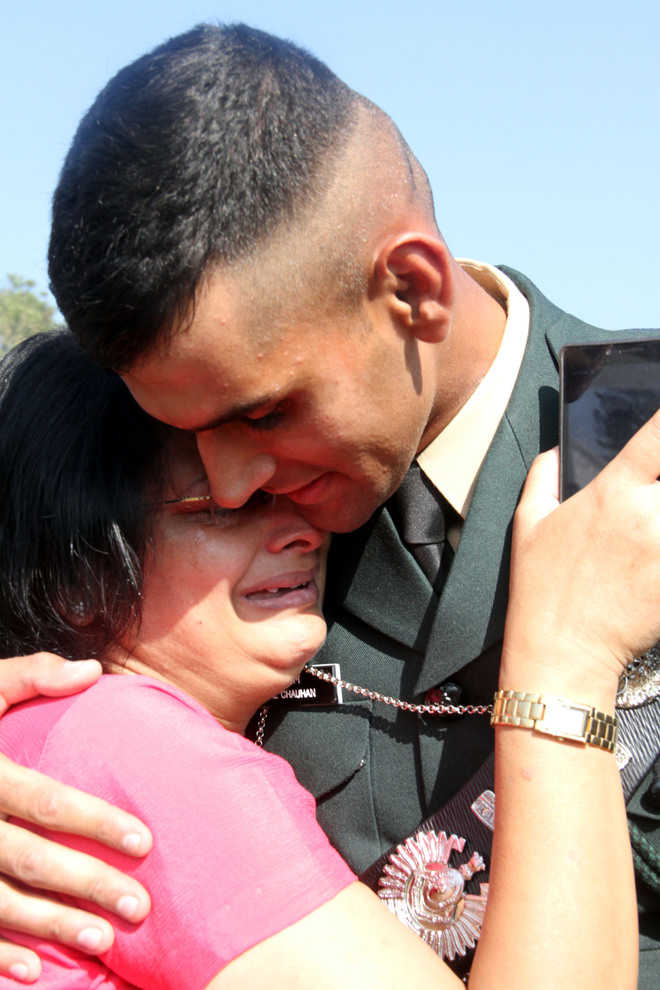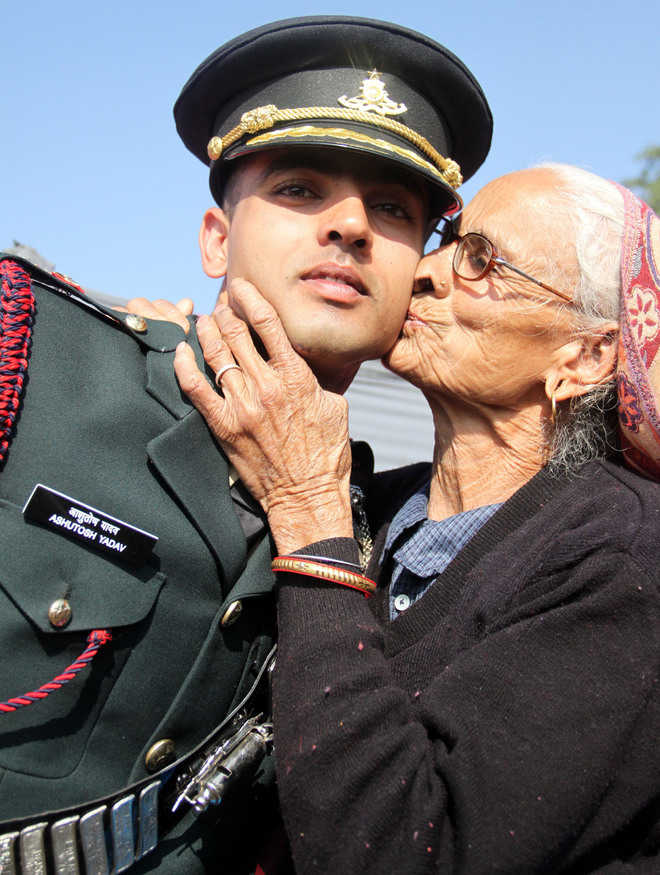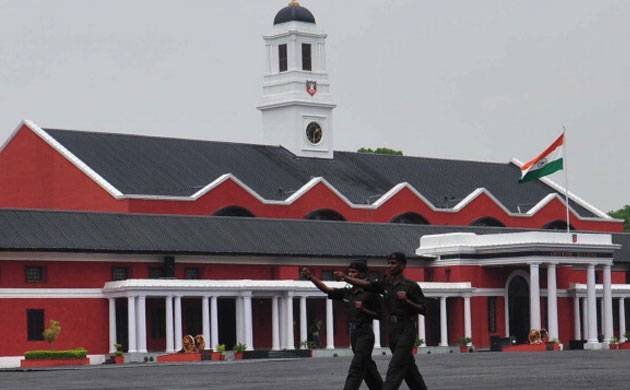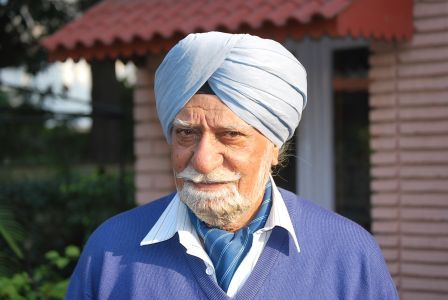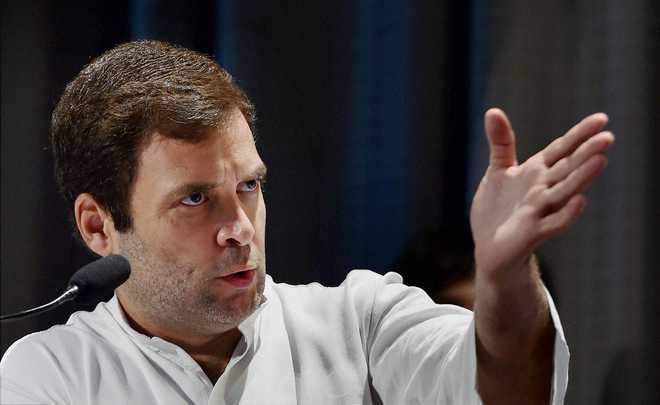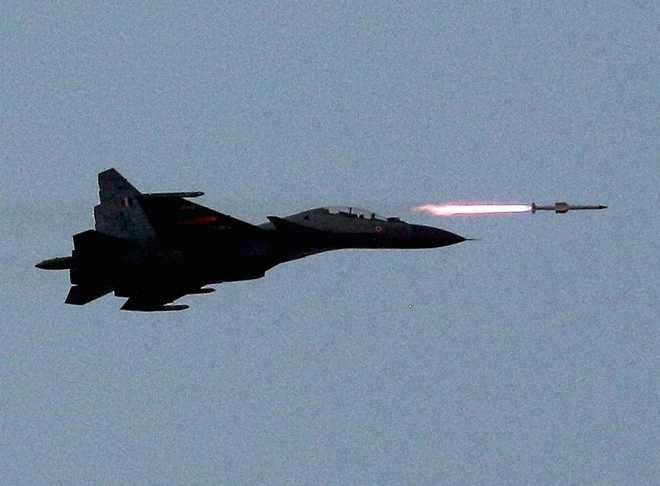After the surgical strikes, while the ruling clique took to rhetoric to maximise electoral mileage, the Opposition too fared badly. It wanted visible proof of the Army strikes, thereby casting doubts on the credentials of the Army. The worst part of politicisation is the manner in which politicians jump onto live shouting matches on the electronic media.
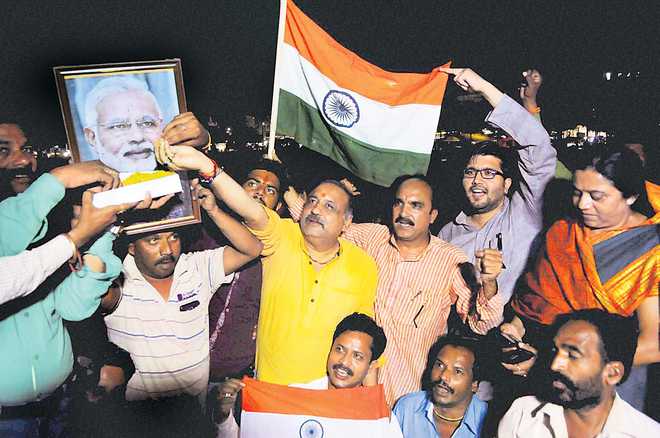 Cashing in on surgical strikes: Workers of the Bharatiya Janata Party (BJP) in Bhopal offer laddoos to a poster of Prime Minister Narendra Modi. They were celebrating the surgical strikes by the Army to avenge the Uri Attack. PTI.
Cashing in on surgical strikes: Workers of the Bharatiya Janata Party (BJP) in Bhopal offer laddoos to a poster of Prime Minister Narendra Modi. They were celebrating the surgical strikes by the Army to avenge the Uri Attack. PTI.OF all the dimensions of modern warfare, the “battle of the mind” takes precedence. If we cannot win the challenge this poses, all other dimensions that support warfare like technology, armaments, strategy, tactics, will have a limited effect. In the final analysis, a positive mind is an imperative that will drive the brawn to do the unachievable. The mind plays a dominant role over morale, the most important battle-winning factor. A positive mind will lead to high morale. Morale is built over a long process by inculcating soldierly traits through holistic training. From this, a soldier imbibes confidence in himself, his physical prowess, ability to effectively handle weapons and develop intense camaraderie. He is motivated and strengthened psychologically by battle-worthy wherewithal and sound military leadership at all levels. For his psychological conditioning, of equal importance is a reassurance that the entire nation stands by him. His needs will be met and if he returns wrapped in the Tricolour, he will be remembered and his family will be cared for in every way required by a grateful nation. While the soldier has delivered on his oath, have the nation and society too played a complementary role?The target of all psychological warfare is the mind. It is planned very consciously by employing falsehoods, distorting facts, negative exaggeration of situations and using every possible means to create dissent within the adversary population and finally to demoralise the armed forces and weaken its battle worthiness. The game gets played very deliberately but subtly; through media manipulation, by word of mouth with whispering campaigns and today, in an unrestricted way through cyberspace. Cyberspace is neutral territory for everyone and governments the world over have no control over this. Nations, including the US, Russia and China, have tried but failed. Exploitation of cyberspace can yield out-of-proportion gains for the exploiter, especially for non-state actors. The Isis has spread the call for a caliphate, dreaded hate culture and attracted recruits from the world over through cyberspace. The Kashmiri militant Burhan Wani took to the Internet. The media turned him into a youth icon and after he was killed impetus was given to unrest in the Valley, mostly by exploiting social media. Cyberspace enables unlimited and unhindered opportunities to field fake videos, morphed photos and spread disinformation, particularly of human rights’ violations. This make-believe scenario leads to immense pressure on soldiers, especially on their leaders. Countering these falsehoods is not easy as there are any number of Human Rights Organisations, individuals and “Trojan Horses,” who without bothering to check on the veracity of information target the security forces. Society cannot remain oblivious to such propaganda and must understand that only a united national effort can enable our soldiers to boost their morale and win the mind game. Post the tragedy at Uri, the intent of the Army was very clear, to strike back at the place and time of its choosing. It was no empty boast but a definite intent and they struck back on selected targets with phantom-like stealth, destroyed the targets with combat effectiveness, left no tell-tale signs besides fulfilling their ethos of “leaving no one behind.” The only difference from many such previous strikes was that the government of the day declared that we did it. The nation acknowledged this action and the short-term praise for the Army with shouts of “let us stand by our soldiers” was possibly the only positive reinforcement in the mind game. Negativity was the hallmarke of all other reactions, particularly the politicisation of the surgical strikes. The Defence Minister repeatedly termed the action as the “first-ever surgical strike”, made statements like the Army not knowing its “Hanuman-like capabilities” till he arrived on the scene or crediting the surgical strikes to RSS teachings. Professionalism and secularity of the Army was discredited. Political hullabaloo with absolute indiscretion took centre stage and an acrimonious debate followed. All the boasts by the government of having taught Pakistan a lesson proved wrong. Terrorists continued their nefarious game, including inhuman acts of beheading two of our soldiers. After that came the strike at Nagrota, on an area housing the families of soldiers. No lesson has been learnt by the politicians and their tamasha has resurfaced. While the ruling clique took to rhetoric to maximise electoral mileage, the Opposition too fared badly wanting visible proof of the Army strikes thereby casting doubts on the credentials of the Army. The worst part of the politicisation sets in as the politicians jump onto the bandwagon of the unrelenting live shouting matches over electronic media. Guest speakers from Pakistan relish and smirk at our infighting and spread anti-India venom by being paid for it. Our Pakistan-centric focus goes unabated. See how currently the credentials of the new Pakistan army chief have been covered. We have managed to give the enemy an upper hand at the mind game.It is a must for society to have an attitudinal change in order to contribute tremendously to enable the soldiers morale to be boosted, especially by segments which have grown larger than life with huge fan followings such as cricketers and Bollywood. In the world of sports, play goes on as usual but there is always a token remembrance as a tribute to the victims of a tragedy before a game begins.The gesture of the cricketers to display the name of their mother on their shirt before the India-New Zealand was indeed a welcome salute to mothers. Had they added a salute to the martyrs by observing a two-minute silence and donning a black ribbon on the cap or sleeve in front of live crowds and millions glued to the television to watch, the effect on the viewers would have been electrifying. Post-Uri, Bollywood stars embroiled themselves in an unnecessary controversy over the expulsion of Pakistani actors. While some actors vehemently opposed this, others countered this view vociferously and many decided to sit on the fence. When the need was to show solidarity with the nation they wanted to remain undisturbed in their cocoons.The view that actors, cultural exchanges and the like must not be affected by terrorist-related happenings is deplorable. Tomorrow if all writers, journalists, activists, lawyers and all other non-military professionals think and feel similarly, then what? Political one-upmanship, with gimmicks like having photo ops with troops, launching the antic of #sandesh2soldiers and sending the lady ministers on a rakhi-tying spree are unfruitful activities. Politicians of all hues should give a push to provide the armed forces the wherewithal needed to battle and urgently make up the critical deficiencies of equipment to reduce their casualties. Major concerns of (lowering status, pay and allowances, pensions and disability) and the ever-elusive war memorial must be resolved. There seems to be no time for this. The realisation must dawn on politicians and society that all this makes the soldiers question the apathy towards them. Patriotism and sacrifice is the responsibility of every citizen of our country. We must learn that strengthening the mind of the soldier is of vital importance for his morale and final victory.The writer is a former Commandant of the Indian Military Academy, Dehradun & former Chairman, Punjab Public Service Commission.
